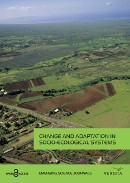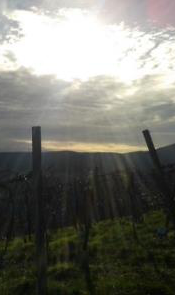Sessions
- Mapping and assessment of ecosystem services
(Benjamin Burkhard, Joachim Maes) - Application of ecosystem services in planning and management
(Christian Albert) - Landscape ecology worldwide - key questions, key impacts
(Felix Kienast) - Sustainable rural development
(Roman Lenz) - Nature-based solutions for urban areas
(Dagmar Haase, Jürgen Breuste)
Session Overview
Session 1 - Mapping and assessment of ecosystem services
(Benjamin Burkhardt, Joachim Maes)Under Action 5 of the EU biodiversity strategy to 2020 the member states have made a commitment to map and assess ecosystem services. Across Europe, and in particular in Germany, much progress has been made in to map different ecosystem services at different spatial scales, for different ecosystems and using a variety of methods and tools. This session will take stock of ES mapping research activities in Germany and elsewhere with special emphasis on the landscape scale. This synthesis will be particularly useful to support the ongoing ecosystem assessment in response of Action 5.
Session 2 - Application of ecosystem services in planning and management
(Christian Albert)It is being increasingly discussed whether - and if so, how - the concept of ecosystem services should be used in spatial planning and management of landscape development. Numerous projects are exploring the extent to which the use of the concept can generate new information that will allow other perspectives on nature and landscape, and which could contribute in the end to a better protection and sustainable use of ecosystems. In addition, case studies will test which actual advantages and disadvantages exist by using the concept of ecosystem services in practice.
The aim of this session is to present insights and perspectives on the use of ecosystem services concept in the planning and management of landscapes and to discuss them. The contributions this session range from examples for application of the ecosystem services concept in urban planning and forest management up to experiences from the use of the concept in cross-border projects and the national environmental policy. In a final discussion the main findings of the various contributions will be reflected.
Session 3 - Landscape Ecology Worldwide - key questions, key impacts
(Felix Kienast)In this session landscape-ecological research is presented from Africa, South-America, Eurasia, India and Europe. A majority of studies deal with agricultural or forest land and how these patches develop over time under the influence of climate change, land abandonment or active afforestation. Maintaining the multifunctionality of these patches even if they undergo massive changes is the common issue in most contributions. The ecosystem service paradigm and its use for trade-off analysis seems to be the underlying principle in the papers. Many contributions employ sophisticated land-use modeling techniques to infer future successional changes. Most of the papers try to derive management recommendations based on the results, and it is encouraging how the human dimension is taken into account in all papers. Surprisingly there are no papers in this session that explicitly deal with urban landscapes. Urbanization, however is an implicit driver in many of the developed scenarios.
Session 4 - Sustainable rural development
(Roman Lenz)Sustainable development is often referred to as a search process, which is about responsible and fair relating between humans and nature. In rural areas, especially land uses (agricultural, grassland, forest), as well as recreation and tourism of nature conservation are affected and need to be assessed regarding their sustainability. For this purpose, some recent results of landscape ecological research presented. In light of today's discussion, which services are provided by the land uses for human wellbeing, some contributions of this session also refer to ecosystem services, when it comes to an assessment of this development in rural areas.
Session 5 - Nature-based solutions for urban areas
(Dagmar Haase, Jürgen Breuste)The symposium focuses on role and function of urban green infrastructure and ecosystems in cities. In times of extreme urban growth in the Global South and reurbanization in Europe and the US, ecosystem services and solutions that mimicry nature gain more and more importance to maintain human well-being and health in our cities. The papers of this session take up this challenge in various concerns: The topics range from air purification by urban trees, the heat capture by green spaces, green infill development strategies as well as biodiversity in cities as a whole including several ways of implementation and governance of green. Next to 6 research papers the symposium offers an exciting panel discussion with experts on this topic.











